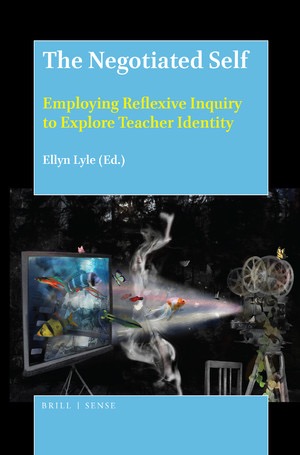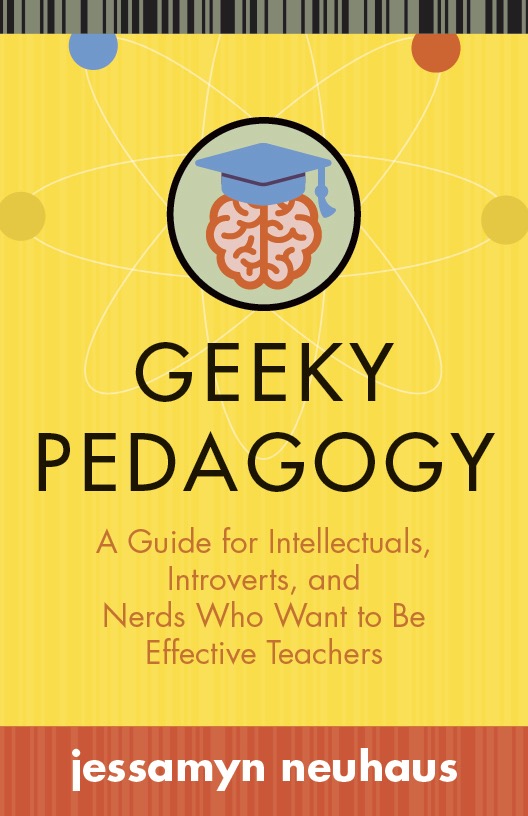teacher identity
Select an item by clicking its checkbox
Reviewed by: Leslie Cara Fuller, Southern Methodist University
Date Reviewed: June 17, 2021
Date Reviewed: June 17, 2021
Teacher identity resides in the foundational beliefs and assumptions educators have about teaching and learning. These beliefs and assumptions develop both inside and outside of the classroom, blurring the lines between the professional and the personal. Examining the development of teacher identity at this intersection requires a unique reflexive capacity.
Reflexive inquiry is both established and continually emerging. At its most basic, reflexivity refers to researchers’ consciousness of ...
Reflexive inquiry is both established and continually emerging. At its most basic, reflexivity refers to researchers’ consciousness of ...
Teacher identity resides in the foundational beliefs and assumptions educators have about teaching and learning. These beliefs and assumptions develop both inside and outside of the classroom, blurring the lines between the professional and the personal. Examining the development of teacher identity at this intersection requires a unique reflexive capacity.
Reflexive inquiry is both established and continually emerging. At its most basic, reflexivity refers to researchers’ consciousness of their role in and effect on both the act of doing research and arriving at research findings. In making central the role of the researcher in the research process, reflexive inquiry interrogates agency while examining philosophical notions about the nature of knowledge.
While advancements have been made in investigating the relationship between teacher knowledge and teacher practice, the research often fails to connect this meaning with self-knowledge and issues of identity. Through a consideration of these tenets, the authors in this collection embrace critical, qualitative, creative, and arts-integrated approaches to examine ways that reflexive inquiry supports studies in teacher identity. Moving between theory and lived experience, the authors individually and collectively lay bare teacher identity as negotiated while evidencing the epistemological merits of reflexive inquiry. (From the Publisher)
Reflexive inquiry is both established and continually emerging. At its most basic, reflexivity refers to researchers’ consciousness of their role in and effect on both the act of doing research and arriving at research findings. In making central the role of the researcher in the research process, reflexive inquiry interrogates agency while examining philosophical notions about the nature of knowledge.
While advancements have been made in investigating the relationship between teacher knowledge and teacher practice, the research often fails to connect this meaning with self-knowledge and issues of identity. Through a consideration of these tenets, the authors in this collection embrace critical, qualitative, creative, and arts-integrated approaches to examine ways that reflexive inquiry supports studies in teacher identity. Moving between theory and lived experience, the authors individually and collectively lay bare teacher identity as negotiated while evidencing the epistemological merits of reflexive inquiry. (From the Publisher)
Reviewed by: Hans H. Wiersma, Augsburg University
Date Reviewed: June 21, 2021
Date Reviewed: June 21, 2021
Geeky Pedagogy is a funny, evidence-based, multidisciplinary, pragmatic, highly readable guide to the process of learning and relearning how to be an effective college teacher. It is the first college teaching guide that encourages faculty to embrace their inner nerd, inviting readers to view themselves and their teaching work in light of contemporary discourse that celebrates increasingly diverse geek culture and explores stereotypes about super-smart introverts.
Geeky Pedagogy ...
Geeky Pedagogy ...
Geeky Pedagogy is a funny, evidence-based, multidisciplinary, pragmatic, highly readable guide to the process of learning and relearning how to be an effective college teacher. It is the first college teaching guide that encourages faculty to embrace their inner nerd, inviting readers to view themselves and their teaching work in light of contemporary discourse that celebrates increasingly diverse geek culture and explores stereotypes about super-smart introverts.
Geeky Pedagogy avoids the excessive jargon, humorlessness, and endless proscriptions that plague much published advice about teaching. Neuhaus is aware of how embodied identity and employment status shape one’s teaching context, and she eschews formulaic depictions of idealized exemplar teaching, instead inviting readers to join her in an engaging, critically reflective conversation about the vicissitudes of teaching and learning in higher education as a geek, introvert, or nerd. Written for the wonks and eggheads who want to translate their vast scholarly expertise into authentic student learning, Geeky Pedagogy is packed with practical advice and encouragement for increasing readers’ pedagogical knowledge. (From the Publisher)
Geeky Pedagogy avoids the excessive jargon, humorlessness, and endless proscriptions that plague much published advice about teaching. Neuhaus is aware of how embodied identity and employment status shape one’s teaching context, and she eschews formulaic depictions of idealized exemplar teaching, instead inviting readers to join her in an engaging, critically reflective conversation about the vicissitudes of teaching and learning in higher education as a geek, introvert, or nerd. Written for the wonks and eggheads who want to translate their vast scholarly expertise into authentic student learning, Geeky Pedagogy is packed with practical advice and encouragement for increasing readers’ pedagogical knowledge. (From the Publisher)

